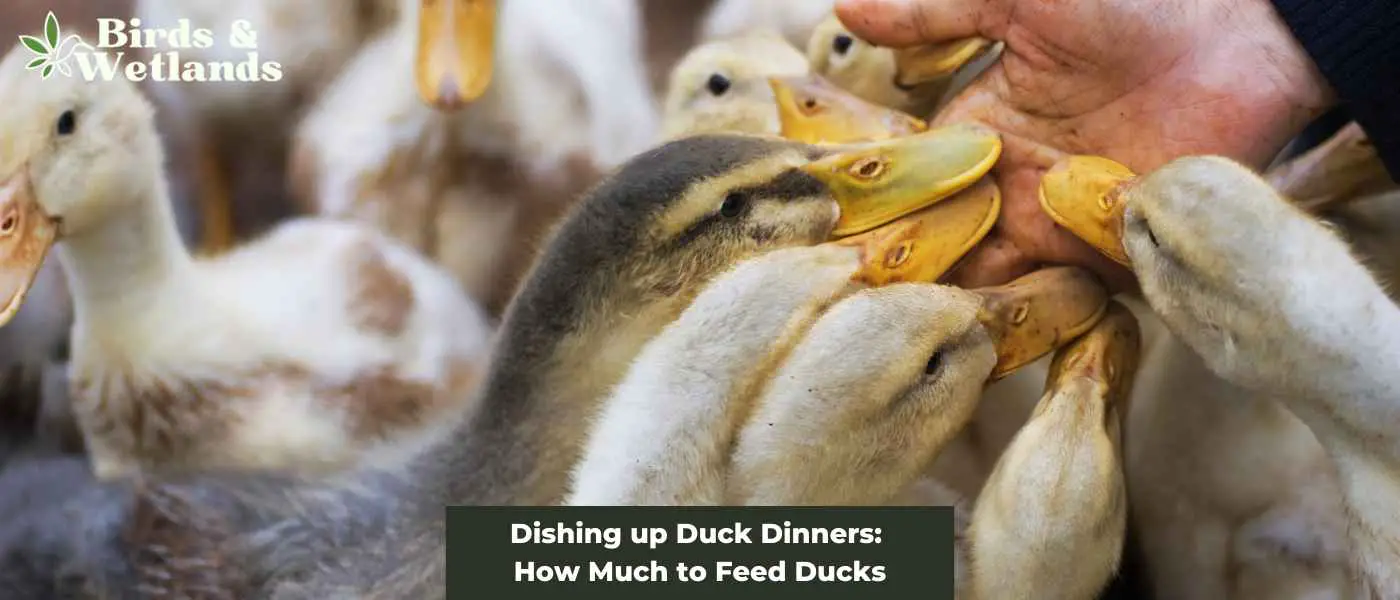Feeding ducks the right amount and type of food is essential to their well-being, whether you are raising them for meat or eggs, or simply keeping them as pets.
The amount of food ducks need depends on various factors such as their breed, age, and activity level, among others.
How Much Do Ducks Need Per day?
The amount of feed required for ducks depends on their age, size, and activity level. As a general guideline, adult ducks typically consume around 0.25 to 0.5 pounds (113 to 227 grams) of feed per day. Younger ducks or ducklings need higher protein content and may consume more feed. Monitor your ducks’ body condition to ensure they have enough food and adjust the feed amount accordingly to maintain their optimal health.
Key Takeaways
Adult ducks typically eat 0.25 to 0.5 pounds (113 to 227 grams) of feed per day
Ducklings require more feed with higher protein content
Monitor body condition and adjust feed amounts to maintain optimal health
Why Feeding Ducks Properly is Important
When it comes to feeding ducks, it is important to provide them with a balanced diet that meets their nutritional needs. Ducks need a diet that is high in protein and low in carbohydrates, with plenty of vitamins and minerals.
There are several types of feed available for ducks, including chick feed or baby chicks, layer feed, breeder feed, and commercial feed, among others. It is important to choose the right feed for your ducks based on their age, breed, and purpose. Ducks also need access to clean water and grit to aid in digestion.
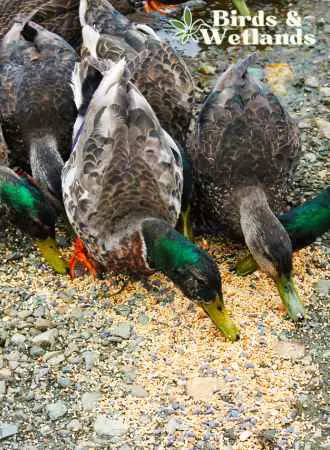
Best Duck Feed Pellets
Are you a duck owner looking for the perfect feed to keep your feathered friends happy and healthy? Look no further than Purina Duck Feed Pellets! With their nutritionally balanced formula and high-quality ingredients, these pellets are the ultimate solution for providing your ducks with the nutrition they need to thrive.
Pros
- Complete Nutrition: Purina Duck Feed Pellets are nutritionally balanced to provide all the essential vitamins and minerals that ducks need to stay healthy and strong.
- Easy to Digest: The pellets are specially formulated to be easy to digest, which makes them ideal for ducks of all ages.
- Promotes Growth and Development: With its balanced nutrition formula, Purina Duck Feed Pellets are designed to support healthy growth and development in ducks.
- Suitable for All Breeds: Whether you have domestic ducks or wild ducks, Purina Duck Feed Pellets are suitable for all breeds of ducks.
- Trusted Quality: Purina has been producing high-quality animal feed for over 100 years, so you can trust that your ducks are getting the best possible nutrition with Purina Duck Feed Pellets.
Cons
- Cost: Compared to other types of duck feed on the market, Purina Duck Feed Pellets can be slightly more expensive. However, many customers feel that the high-quality ingredients and balanced nutrition formula are worth the extra investment.
- Pellet Size: Some customers have noted that the pellet size of Purina Duck Feed Pellets can be quite large, which may not be suitable for smaller or younger ducks. However, many customers have reported that the pellets can easily be broken up or soaked in water to make them easier to eat.
Nutritional Needs of Ducks
Ducks require a diet that is high in protein, carbohydrates, and fats. They also need essential vitamins and minerals to maintain their health. A balanced diet is essential for ducks to grow and develop properly.
| Age / Type of Duck | Protein Requirement (%) |
|---|---|
| Ducklings (0-2 weeks) | 20-22% |
| Ducklings (3-6 weeks) | 18-20% |
| Ducklings (7-18 weeks) | 15-16% |
| Laying Ducks | 16-18% |
| Non-Laying Ducks | 14-16% |
| Meat Ducks | 18-20% |
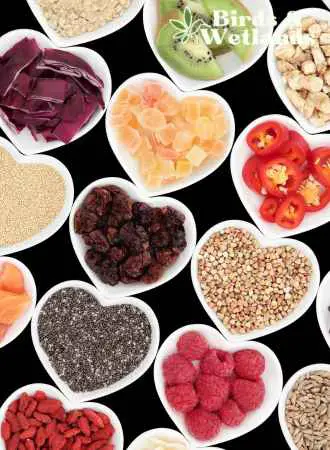
Nutritional Deficiencies
Feeding ducks an imbalanced diet can lead to nutritional deficiencies that can cause various health problems. For example, a lack of protein can cause feather loss, poor egg production, and slow growth. A lack of vitamins and minerals can cause weak bones, poor eggshell quality, and other health problems.
Ducks Health
Feeding ducks properly not only helps prevent nutritional deficiencies but also promotes overall health. A well-fed duck is more resistant to diseases and infections and is more likely to live a longer and healthier life.
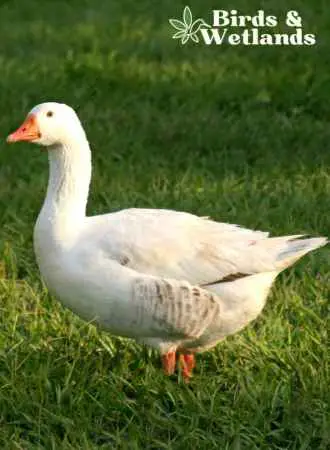
Ducks Diet
The diet of ducks varies depending on their age, breed, and purpose. For example, raising ducks for meat require a higher protein diet than ducks raised for egg production. It is essential to provide ducks with a diet that meets their nutritional needs.
Most ducks will require a varied diet to avoid any serious health problems. Healthy snacks can be added into your own food and adding in brewer’s yeast or oyster shells will ensure
Ducks Food
Ducks can be fed a variety of foods, including commercial feed, grains, vegetables, and insects. Commercial feed is a convenient and balanced source of nutrition for ducks. However, supplementing their diet with fresh foods can provide additional nutrients and variety.
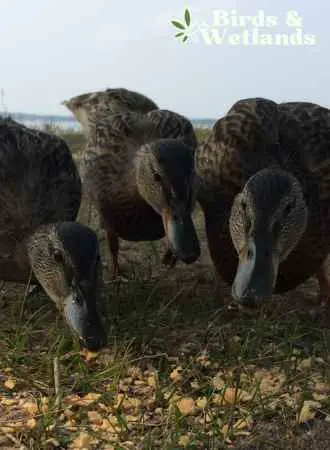
How Much to Feed Ducks
Feeding ducks the right amount of food is crucial for their health and egg production. The amount of food a duck needs depends on its breed, age, size, and activity level. Generally, ducks should consume between 4-8 ounces of feed per day, but this can vary based on the factors mentioned above.
| Age / Type of Duck | Daily Food Amount |
|---|---|
| Ducklings (0-2 weeks) | 10-12% of body weight |
| Ducklings (3-6 weeks) | 8-10% of body weight |
| Ducklings (7-12 weeks) | 6-8% of body weight |
| Young Ducks (13-20 weeks) | 4-6% of body weight |
| Laying Ducks (Adults) | 4% of body weight + layer pellets |
| Non-laying Ducks (Adults) | 4% of body weight |
| Large Breed Ducks | Slightly more than average ducks |
| Small Breed Ducks | Slightly less than average ducks |
If you are raising large meat breeds like Pekins, they may require up to a pound of feed per day. On the other hand, ducks that have access to forage may eat less feed than those that rely solely on commercial feed.
It is important to note that overfeeding ducks can lead to obesity and reduced egg production. On the other hand, underfeeding ducks can also lead to reduced egg production and nutritional deficiencies.
To ensure that ducks are getting the right amount of food, it is recommended to monitor their weight regularly. If a duck is gaining weight too quickly, it may be necessary to reduce its feed intake. Conversely, if a duck is losing weight or not producing enough eggs, it may be necessary to increase its feed intake.
Ducks can also be fed fresh fruits and vegetables, grains, and insects. It is important to provide a balanced diet that meets their dietary needs.

Feeding ducks the right amount of food is crucial for their health and egg production. By monitoring their weight and providing a balanced diet, you can ensure that your ducks are healthy and productive.
Best Overall Duck Feeder -FeatherEase Automatic Chicken Waterer & Feeder
Simplify Your Poultry Care with One Smart Solution!
Enhance your poultry care with the FeatherEase Automatic Chicken Waterer & Feeder, a convenient and efficient solution designed to keep your ducks and chickens well-fed and hydrated.

Pros
- Simplify your poultry care routine: Dual-function design combines an automatic waterer and feeder in one convenient unit.
- Save time and effort: Large feeder and waterer capacities reduce the need for frequent refill.
- Save money: Innovative no-waste feeding system minimizes feed spillage and waste.
- Long lasting: Food-grade, BPA-free materials ensure the safety and health of your poultry, while the durable constructio.
- Easy-to-assemble and maintain design simplifies the process of keeping your poultry hydrated and well-fed.
Cons
- Users with hard water may experience difficulty in separating the inner cup from the main cup of the waterer due to mineral buildup.
- The feeder’s holes may be too large for some users, allowing chickens to scatter food out, which could result in waste.
- The waterer may not function effectively in colder climates, requiring alternative solutions during the winter months.
Feeding Ducks at Different Stages of Life
When it comes to feeding ducks, different stages of life require different types and amounts of food. Here’s what you need to know about feeding baby ducks and adult ducks.
Feeding Baby Ducks
Baby ducks, or ducklings, require a special diet to support their growth and development. Starter feed is a great option for baby ducks, as it contains all the necessary nutrients they need. The feed should be in the form of 1/8 inch diameter pellets or crumbles. It’s important to note that ducklings should not be fed medicated chick starter feed, as it can be harmful to their health.
Ducklings should have access to food and water at all times. Make sure to provide clean water that is shallow enough for them to drink from without the risk of drowning. A good rule of thumb is to provide about 1 gallon of water per day for every 10 ducklings.
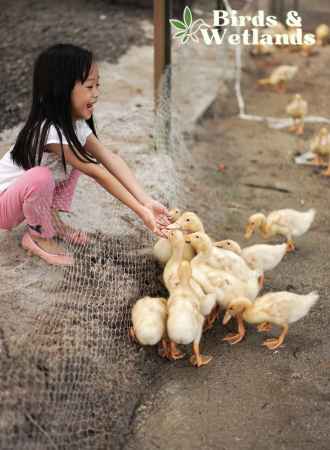
Feeding Adult Ducks
Once ducks reach adulthood, their diet changes. Adult ducks require a balanced diet that includes a mix of protein, carbohydrates, and vitamins and minerals. A good option for adult ducks is a commercial feed that is specifically formulated for waterfowl. This feed typically contains 16-18% protein and should be fed in the form of 3/16 inch diameter pellets.
Adult ducks can also be fed fresh fruits and vegetables, such as lettuce, peas, and corn. It’s important to note that ducks should not be fed bread, as it lacks the necessary nutrients and can cause health problems.
Water access is also important for adult ducks. Ducks should have access to clean water at all times, as they use it for drinking, bathing, and preening. A good rule of thumb is to provide about 1 gallon of water per day for every 4-5 ducks.
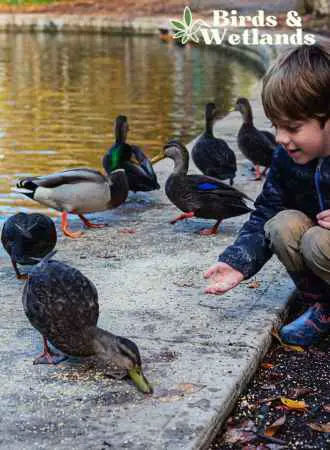
HydraQuench Poultry Drinker
Keep Your Ducks Hydrated & Happy!
Discover the secret to effortless hydration for your ducks with the HydraQuench Poultry Drinker, designed to quench your feathered friends’ thirst, rain or shine.

Pros
- Large 5-gallon capacity ensures a constant water supply for your ducks, minimizing refills and saving you time.
- Innovative float valve system maintains a consistent water level, reducing the risk of dehydration for your birds.
- Durable, UV-resistant plastic construction ensures a long-lasting, weather-resistant drinking solution.
- Easy-to-fill design with a removable lid simplifies refilling, cleaning, and maintaining the waterer.
- Versatile design is suitable for ducks, chickens, and other poultry, making it a one-stop hydration solution for your backyard farm.
Cons
- May not be suitable for smaller setups or those with limited space, due to its 5-gallon size.
- Some users have experienced issues with the float mechanism, which may require occasional maintenance or modification to prevent leaking and ensure consistent water flow.
Feeding ducks at different stages of life requires different types and amounts of food. By providing a balanced diet and clean water, you can help ensure the health and well-being of your ducks.
FAQs on How Much Do Ducks Eat Per Day
Can you overfeed ducks?
Yes, ducks can be overfed, which can lead to obesity, health problems, and reduced egg production. It’s essential to provide a balanced diet that meets their nutritional needs without overfeeding. Monitor their body condition and adjust their feed intake accordingly.
How much grain does a duck eat per day?
The amount of grain a duck eats per day depends on its age, size, and activity level. Adult ducks typically consume about 4% of their body weight in feed daily. Grain, such as cracked corn, should be given in moderation and supplemented with a commercial feed or pellet feed to ensure a balanced diet.
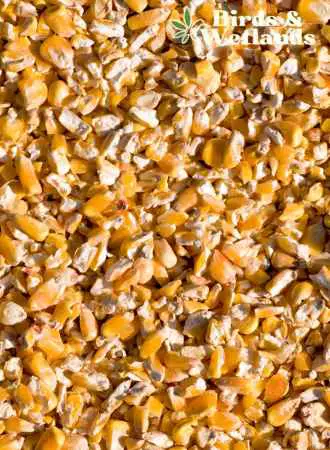
How often and how much do you feed ducks?
Ducks should generally be fed twice a day, once in the morning and once in the evening. The amount of feed depends on the duck’s age, size, and activity level. A balanced diet should be provided, with adult ducks consuming about 4% of their body weight daily.
Do ducks need food at all times?
Ducks do not need constant access to food, but they should have a consistent feeding schedule with a balanced diet. Ensure they have access to fresh water at all times, and grit for proper digestion if they are free-ranging or consuming a natural diet.
How often should I feed my ducks?
Ducks should be fed twice a day, once in the morning and once in the evening. This feeding schedule provides them with the nutrients they need while preventing overfeeding and potential health problems. You can feed your pet ducks duck feed or chicken feed as long as it is not medicated feed. You can get duck feed from your local feed store. If you are raising ducks for meat production then your ducks’ feed should be formulated to promote healthy growth and weight gain.
How many cups of food does a duck need per day?
The amount of food a domestic ducks needs per day depends on its age, size, and activity level. In general, adult ducks consume about 4% of their body weight daily. The exact amount of food in cups will vary depending on the type of feed and the size of the duck. It is essential to monitor your ducks’ health and adjust their food intake accordingly.
What should I feed my young ducklings?
Young ducklings grow very quickly and need food that is high in protein and calories. For the first 3 weeks of life, it’s essential to feed them a starter diet that is 18-20% protein. Ensure the pellets are small enough for ducklings to eat, ideally about 1/8″ in size. From the fourth through the 13th week, switch to a maintenance diet to support their continued growth and development.
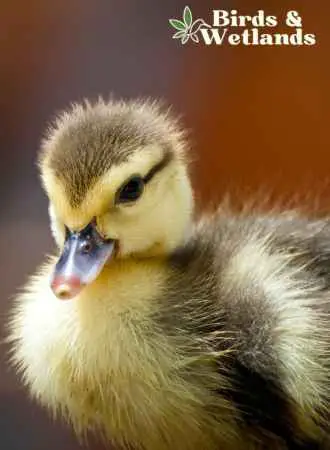
How does diet affect the egg production capacity of ducks and other birds?
Consumption of an unbalanced diet can ultimately affect the health of the Muscovy ducks, as well as its egg production capacity. To ensure optimal growth and development for ducks laying eggs, it is recommended to provide ducks with specially formulated duck pellets and crushed grains, as they contain all the essential nutrients needed for maintaining a healthy bird and optimal egg production.
Ducks Diet
The diet of ducks varies depending on their age, breed, and purpose. For example, raising ducks for meat requires a higher protein diet than ducks raised for egg production. It is essential to provide ducks with a diet that meets their nutritional needs to avoid any serious health problems. Most ducks will require a varied diet to maintain their overall health.
How much should I feed my ducks to get more eggs?
To maximize egg production, it’s essential to provide ducks with a balanced diet that meets their nutritional requirements. Feeding them a diet rich in protein and essential nutrients can help prevent nutritional deficiencies that may lead to a decrease in egg production.
What role does oyster shell play in a duck’s diet?
Oyster shells are an excellent source of calcium, which is crucial for strong eggshells and healthy bones in ducks. Providing oyster shells as a supplement can help improve egg production and overall health in your ducks.
Can ducks be free-range?
Yes, ducks can be free-range, allowing them to forage for food and access natural sources of nutrients. Free-ranging ducks can have access to small rocks, insects, and plant matter, which can contribute to their overall nutritional needs. However, it is essential to ensure they have access to clean water and a balanced diet to meet their dietary requirements fully.
How does humid weather affect duck feeding?
Humid weather can cause mold toxins to develop in food, which can lead to kidney failure and other health issues in ducks. Ensure that you store your duck feed in a clean, dry environment to prevent mold growth and protect your ducks’ health.
What are the nutritional requirements of ducks?
A small flock of ducks need a balanced diet consisting of proteins, fats, vitamins, minerals, and carbohydrates to maintain good health and optimal growth and a constantwater supply. When keeping ducks you will need to be aware of that the specific nutritional requirements may vary depending on the duck’s age, breed, and purpose.

